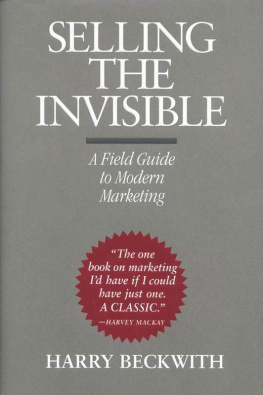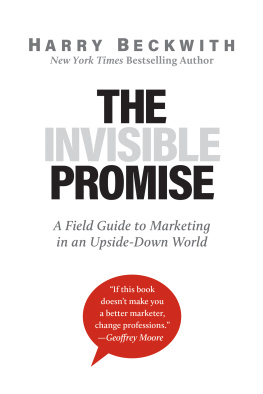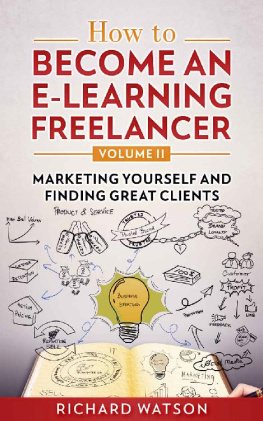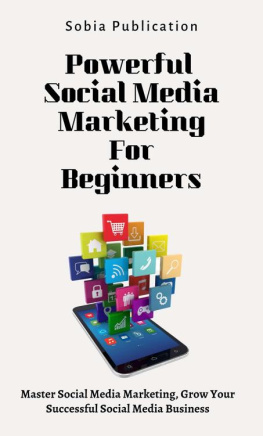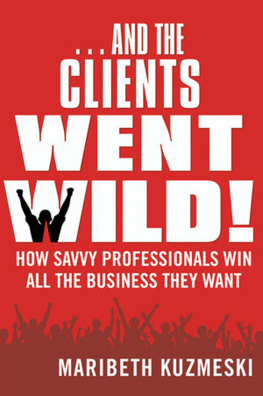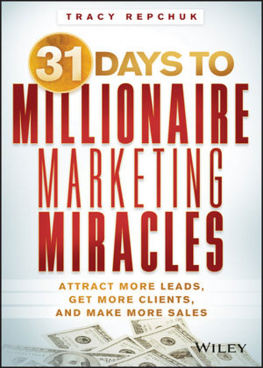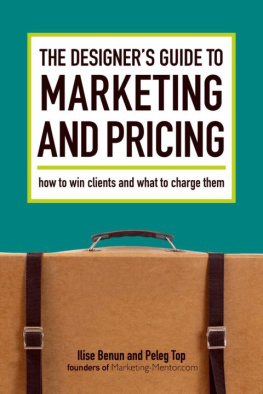Harry Beckwith - The Invisible Touch: The Four Keys to Modern Marketing
Here you can read online Harry Beckwith - The Invisible Touch: The Four Keys to Modern Marketing full text of the book (entire story) in english for free. Download pdf and epub, get meaning, cover and reviews about this ebook. year: 2001, publisher: Grand Central Publishing, genre: Romance novel. Description of the work, (preface) as well as reviews are available. Best literature library LitArk.com created for fans of good reading and offers a wide selection of genres:
Romance novel
Science fiction
Adventure
Detective
Science
History
Home and family
Prose
Art
Politics
Computer
Non-fiction
Religion
Business
Children
Humor
Choose a favorite category and find really read worthwhile books. Enjoy immersion in the world of imagination, feel the emotions of the characters or learn something new for yourself, make an fascinating discovery.

- Book:The Invisible Touch: The Four Keys to Modern Marketing
- Author:
- Publisher:Grand Central Publishing
- Genre:
- Year:2001
- Rating:4 / 5
- Favourites:Add to favourites
- Your mark:
- 80
- 1
- 2
- 3
- 4
- 5
The Invisible Touch: The Four Keys to Modern Marketing: summary, description and annotation
We offer to read an annotation, description, summary or preface (depends on what the author of the book "The Invisible Touch: The Four Keys to Modern Marketing" wrote himself). If you haven't found the necessary information about the book — write in the comments, we will try to find it.
The Invisible Touch: The Four Keys to Modern Marketing — read online for free the complete book (whole text) full work
Below is the text of the book, divided by pages. System saving the place of the last page read, allows you to conveniently read the book "The Invisible Touch: The Four Keys to Modern Marketing" online for free, without having to search again every time where you left off. Put a bookmark, and you can go to the page where you finished reading at any time.
Font size:
Interval:
Bookmark:
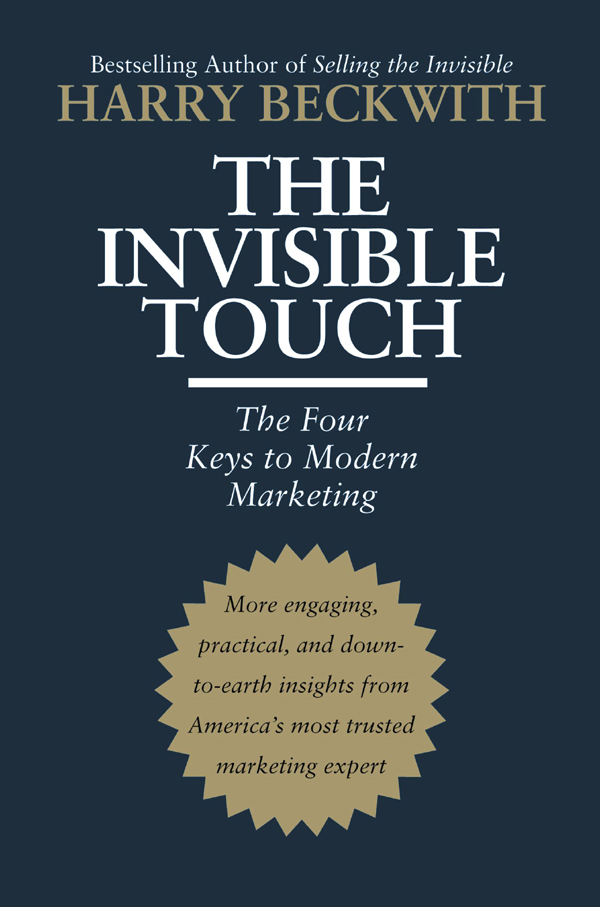
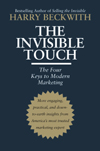
In accordance with the U.S. Copyright Act of 1976, the scanning, uploading, and electronic sharing of any part of this book without the permission of the publisher is unlawful piracy and theft of the authors intellectual property. If you would like to use material from the book (other than for review purposes), prior written permission must be obtained by contacting the publisher at permissions@hbgusa.com. Thank you for your support of the authors rights.
To receive special offers, bonus content, and news about our latest ebooks and apps, sign up for our newsletters.
Sign Up
Or visit us at hachettebookgroup.com/newsletters

For more about this book and author, visit Bookish.com.
Copyright 2000 by Harry Beckwith
All rights reserved. In accordance with the U.S. Copyright Act of 1976, the scanning, uploading, and electronic sharing of any part of this book without the permission of the publisher is unlawful piracy and theft of the authors intellectual property. If you would like to use material from the book (other than for review purposes), prior written permission must be obtained by contacting the publisher at permissions@hbgusa.com. Thank you for your support of the authors rights.
Business Plus
Hachette Book Group
237 Park Avenue, New York, NY 10017
hachettebookgroup.com
twitter.com/grandcentralpub
First ebook edition: August 2009
Originally published in hardcover by Hachette Book Group.
Business Plus is an imprint of Grand Central Publishing.
The Business Plus name and logo are trademarks of Hachette Book Group, Inc.
The publisher is not responsible for websites (or their content) that are not owned by the publisher.
ISBN 978-0-759-52094-3
E3
To you, Mom.
I heard you.
T he lures of partial-celebrity are tempting. For both your sake and mine, however, I hope to resist them.
I wrote Selling the Invisible from obscurity. A few hundred clients, friends, and acquaintances knew me. On the morning the book first appeared on the shelves, March 5, 1997, our clients reached from Greensboro to San Francisco, but 80 percent worked within view of the IDS building in mid-town Minneapolis.
As I look back on how much has changed since then, I realize my first book offers this lesson to service providers: Write one. If a book sells nicely, an authors life changes.
Letters arrived postmarked from towns wed never heard of (Valley, Nebraska? Kosciusko, Mississippi?). Callers spoke in dialects wed never heard of (Singapore has a dialect? Pakistan?). Both often overflowed with compliments. Those incredible compliments actually poured in, unsolicited. None was written by an old friend, by someone whose back Id scratched first, or by Jimmy Franco, Warner Books fine publicist.
This welcome response brought with it a temptation.
The temptation is to think I know everything now, and to write a book from that narrower perspective. Like fatigue narrows a distance runners peripheral vision, the label expert can limit an authors. The author starts looking inside, confident of finding wisdom there, drawing on what he already knows. Thus diverted, he misses the critical insights outside his tunnel vision.
This book does look closer to home. Its emphasis on my experienceas a service provider, a client, and an adviser to servicesreflects how the months spent on the first book changed my perspective.
Selling the Invisible drew heavily on larger businesses such as McDonalds. As the book evolved, however, my perspective evolved, too. It was ready to change completely; the slightest nudge would do that.
Then the nudge came.
In the summer of 1997, I called Alan Webber, the editor of the magazine Fast Company. In the course of a nice phone conversation, we agreed to a swap: two signed copies of Selling the Invisible in exchange for a Fast Company denim hat.
The following Monday, my receptionist carried a small box into my office. The conspicuous return address said Fast Company. I tore open the box, knowing what was inside.
I reached in, pulled out the hat, and noticed an enigmatic slogan on the back of it: Work Is Personal. I viewed those three words, perplexed. What did they mean? What could they mean?
The force of those words soon imploded in my head: Work is personal.
Work is not about business; its about us. The human dimension of businessthe messy, emotional, utterly human dimensionis not merely important; it is all-encompassing. As a result, we must plunge into the world of feelingstruly frightening territory.
In our search for critical insights into business, particularly marketing, we can learn from Peter Drucker, Philip Kotler, and Theodore Levitt. But we can learn just as much from Shakespeare, and perhaps even more from Daniel Golemans bus driver (see ). Business provides one stage on which we act out the human drama. We understand the stage; we know far less about the drama. Fortunately, we can find the texts that can teach about that script in front of us every day: a cabby rushing us through downtown Chicago; your four-year-old son reacting to some colors but not others; Hamlet battling his demons.
The first good lesson of marketing, then, may be this. Look. Just look around. And look carefully. See what is thererather than what you expected to find.
It is not a perfect method. Nothing is. Among other things, you can conclude far too much from the little you see. You see an exception, for example, but declare it the rule. You see something, write a book, and then notice yourself being quoted. You feel terrified. You realize that much of what you have regarded as wisdom all these years was just other people quoting other people like youpeople making their best educated guesses.
The shock is enough to make you stop reading.
I am not expressing false modesty, or modesty at all. I wrote this book with conviction. The evidence makes every conclusion seem almost irrefutable. But like most people, I often assemble the evidence after my conclusions, not before them. I usually stick by my guns, even after my bullets are gone. Like all people, I am puzzling even to myself but deeply engaged in trying to solve this puzzle. It helps me to recognize patterns that help build businesses. Like everyone, I yield to emotions and idiosyncrasies; reason badly; succumb to impulse, influence, and other false prophets; and regularly act against my own self-interest.
With those disclaimers, I begin this book.
I do not intend this as some final word, but as some first ones. Many who have followed this advice have enjoyed either sudden luck or well-earned success. Most of this advice reflects the experience of the twentieth centurys smartest and most successful service marketers: Ray Kroc and Walt Disney. These pages offer fuel for growth and food for thought, and this final reminder: Those two are not mutually exclusive.
The wise marketer looks for buffets filled with food for thought: the isolated events, curious behaviors, odd trends, and tiny bits of data, all of whose relevance is unclear. The marketer who can assemble a shrewd blend of this information can create a power salad: an idea, strategy, or tactic that changes a business. Sometimes, the answer we need is not the answer, but another perspective on the problem. You see a slogan on a hat, for exampleWork is personal. Suddenly, the fog lifts.
Font size:
Interval:
Bookmark:
Similar books «The Invisible Touch: The Four Keys to Modern Marketing»
Look at similar books to The Invisible Touch: The Four Keys to Modern Marketing. We have selected literature similar in name and meaning in the hope of providing readers with more options to find new, interesting, not yet read works.
Discussion, reviews of the book The Invisible Touch: The Four Keys to Modern Marketing and just readers' own opinions. Leave your comments, write what you think about the work, its meaning or the main characters. Specify what exactly you liked and what you didn't like, and why you think so.

